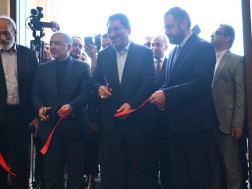A new free trade agreement between the EAEU and Iran will open significant opportunities for Armenian producers. For the first time in the history of trade relations with Iran, a zero-tariff regime will be introduced, reducing the average tariff rate on Armenia’s main exports from 23% to 8.1%. This was announced by Armenia’s Minister of Economy, Gevorg Papoyan, as he presented the EAEU-Iran free trade agreement to a parliamentary committee on October 25.
According to ministry estimates, Armenian businesses will save around $11 million annually due to the tariff reductions. The preferential regime will cover 98% of Armenia’s exports to Iran, including mineral water, soft drinks, chocolate and confectionery, cigarettes, lamb, pharmaceuticals, and jewelry.
Particular emphasis is placed on lamb exports. Armenia already has halal-certified slaughterhouses necessary for exports to Muslim countries. To support this sector, the government will subsidize 50% of farmers’ expenses for purchasing breeding sheep.
An important achievement, according to the minister, is the establishment of quotas on Iranian imports of vegetables and melons, which will protect Armenian farmers from price competition with Iran’s lower-cost produce. Similar restrictions have been set on plastic goods from Iran.
The agreement also provides for the liberalization of Armenian exports of copper and zinc concentrates and for electricity trade between the two countries.
The document, signed in December 2023, will replace the interim agreement that has been in effect since 2019. During this period, EAEU trade with Iran has grown from $2.4 billion to $5.2 billion, although Armenian exports increased only slightly, by 7%, reaching approximately $90-100 million in the first eight months of 2024. Imports from Iran reached $692 million in 2023.
The agreement must be ratified by the parliaments of all EAEU countries to come into effect. The Armenian parliament’s relevant committee has already given a positive review of the document.
















